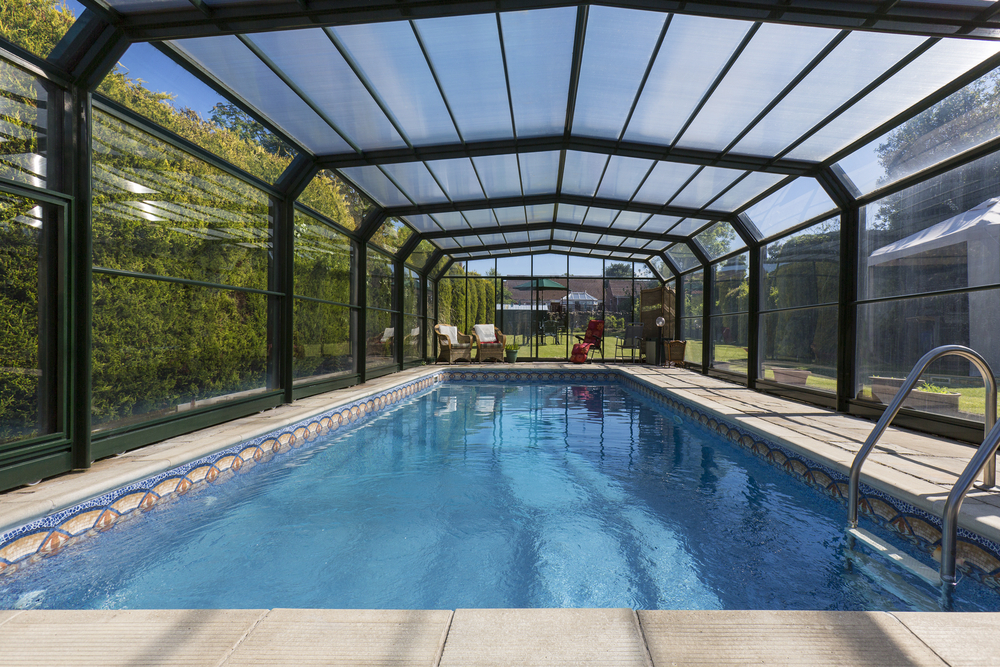Should you get an indoor swimming pool? Is a swimming pool enclosure something that would suit your needs just as well as the indoor pool project would? The swimming pool contractors from Imperial Pools in Champaign, Illinois work with potential pool owners to help them realize the pool project of their dreams — indoor, outdoor or enclosed.
When you have an indoor swimming pool or an enclosed swimming pool you will be able to swim year-round — rain, snow, sleet or sun! If you live in an area of the country that has a short swim season, an indoor pool or one in an enclosure will help you get more use out of the investment you’ve made in your pool project.
Should you get an indoor swimming pool?
There are several items you need to understand about this type of pool. An indoor pool is a permanent construction project that is fully integrated into the home — it’s not simply a pool stuck in a spare bedroom. The indoor swimming pool usually has the structure of the home constructed around it in a separate wing or area of the existing house.
You can certainly have your indoor pool constructed in a room with a retractable roof, doors or walls that open entirely to give you the feeling of swimming outdoors even when the pool is indoors. You could also have an indoor/outdoor pool which is more of a swimming pool enclosure in which the pool is both indoors and partially exposed to the outdoors.
If you’re not ready to undertake an entire whole home renovation project to have a swimming pool installed, you may want to talk with your pool contractor about a swimming pool enclosure rather than an indoor pool project.
What do you need to consider for an indoor swimming pool project?
- The cost. It is expensive! The price for the pool varies based on where you live, how large the pool is, the construction material and other factors. You may be looking at spending more than $50,000 for your indoor pool project.
- Your home will need to be fitted with dehumidification and indoor ventilation. If you don’t do this, the humidity of the pool will lead to mold damage. Ventilation is crucial for health reasons as you don’t want to be breathing in chlorine and other pool chemicals. A home vapor barrier will also likely be required to protect the pool room from the rest of the house; you don’t want the water and humidity to impact the rest of the living space.
- An inground, indoor pool is weighty and you need to be assured the structure of the house and its foundation can support the structure.
- Check with your homeowner’s insurance agent to see whether the indoor pool will be covered and if there are any exclusions or if you can even have the same insurance policy if you have an indoor pool.
- Building and zoning regulations need to be adhered to and you will likely need to obtain building permits – your pool contractor can help with that.
If you want to consider an inground, indoor pool or if you want to talk about swimming pool enclosures, give us a call today.

